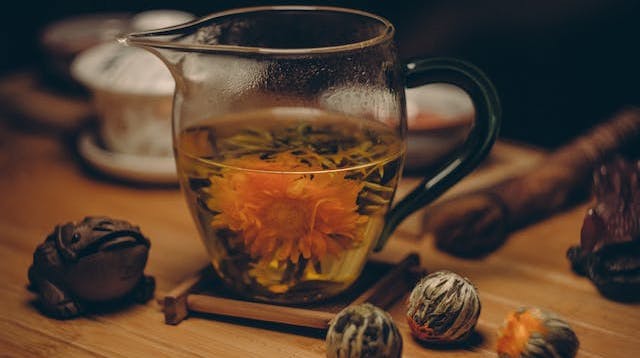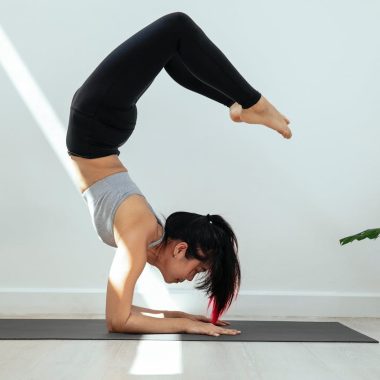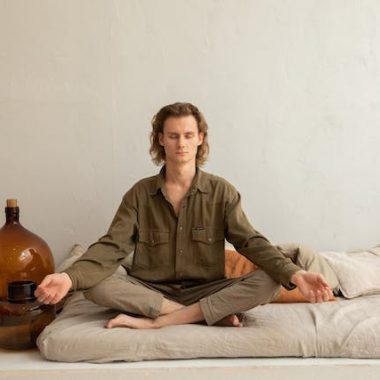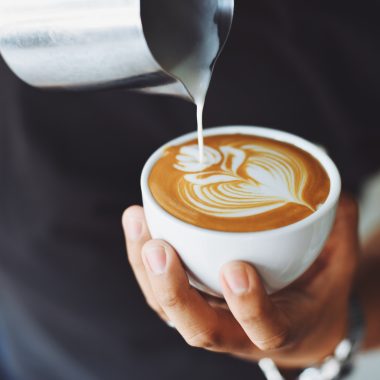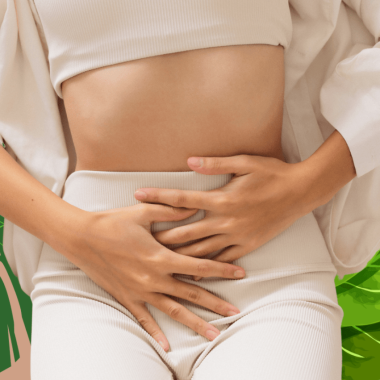For centuries, herbal teas have been revered not just for their flavor but also for their ability to soothe and relax. From ancient Chinese dynasties to Egyptian pharaohs, herbal teas have played a significant role in various cultures, cherished for their healing and calming properties.
Today, these teas have gained popularity as a natural and effective way to unwind and de-stress. In this article, we will explore the world of herbal teas and how they contribute to relaxation, delving into their historical roots and examining their calming benefits. Whether you are looking for a natural way to ease stress, improve sleep, or simply enjoy a moment of tranquility, herbal teas offer a time-honored solution.
The Science Behind Herbal Teas and Relaxation
Herbal teas are not just a delight for the senses; they are a reservoir of natural compounds that aid relaxation and stress reduction. These teas are rich in antioxidants, flavonoids, and essential oils, each playing a unique role in promoting a calm and relaxed state. Antioxidants help combat the stress-induced oxidation in the body, while flavonoids have been linked to mental health benefits, such as reduced anxiety and improved mood.
For instance, a study in the journal Psychopharmacology found that chamomile, a common herbal tea, has significant antidepressant activity. The essential oils in teas like lavender and lemon balm are known for their soothing aromatherapy effects. When these ingredients are combined in a warm, comforting cup of herbal tea, they can help soothe the mind, ease tension, and promote a sense of well-being.
Top Herbal Teas for Relaxation
- Chamomile Tea: Known as the best herbal tea for relaxation, chamomile has been used for centuries to help with sleep and relaxation. Its key compounds, such as apigenin, bind to specific brain receptors decreasing anxiety and initiating sleep. To maximize its effects, steep chamomile tea in hot water for 5-10 minutes before drinking it in the evening.
- Lavender Tea: Lavender isn’t just for scents and soaps; it’s also an excellent herbal tea for relaxation and sleep. It is known for its calming properties, reducing stress and improving sleep quality. For a soothing cup, use a teaspoon of dried lavender flowers per cup of boiling water and steep for 5-7 minutes.
- Lemon Balm Tea: This citrus-scented herb is widely regarded as a great herbal tea for relaxing. It has been shown to alleviate anxiety and promote sleep. For the best results, steep lemon balm leaves for 10 minutes and enjoy it an hour before bedtime.
- Peppermint Tea: Though peppermint is often associated with refreshing qualities, it’s also a great herbal tea for muscle relaxation. It can help soothe digestive issues and relieve stress. Brew it by steeping dried peppermint leaves for 7-10 minutes.
- Valerian Root Tea: Valerian root is well-known for its sedative qualities and is an excellent choice for those asking what kind of herbal tea is good for relaxing. It’s especially effective for insomnia and anxiety. Steep the roots in boiling water for 10 minutes and consume it before bed for optimal relaxation.
Benefits of Regularly Drinking Herbal Teas
Incorporating herbal teas into your daily routine can offer a multitude of health benefits. Regular consumption of these teas can lead to long-term improvements in mental health and stress levels. For example, the ritual of drinking a warm cup of herbal tea for relaxation at night can signal the body and mind to prepare for sleep, thus improving sleep quality over time.
However, it’s important to note any contraindications or side effects. For instance, some people may find certain herbs like valerian root too sedating or may have allergies to specific ingredients. As always, moderation is key, and consulting with a healthcare provider is advisable if you have any health concerns.
How to Incorporate Herbal Teas into Your Daily Routine
Integrating herbal teas into your daily life is simple and enjoyable. Start by replacing your afternoon or evening caffeine with a cup of herbal tea for sleep and relaxation. Create a calming tea ritual by choosing a quiet time and place to enjoy your tea. This can help set the tone for relaxation and provide a much-needed break from the day’s hustle and bustle. Keep a variety of teas, like chamomile for nighttime and lemon balm for a midday break, to suit different times and needs.
Enhancing Your Tea Experience
To further enhance your tea-drinking experience, consider using loose-leaf teas and proper teaware. Loose leaves often offer better flavor and more potent health benefits than tea bags. Additionally, the ambiance plays a significant role in relaxation. Choose a comfortable, quiet spot, perhaps with dim lighting or soft music, to enjoy your herbal tea. This setting can augment the natural relaxing effects of the tea.
Final Words
Herbal teas offer a world of natural benefits for relaxation and well-being. From chamomile to valerian root, these teas provide a simple, soothing way to unwind. We encourage you to explore the diverse range of herbal teas for relaxation and find your perfect cup of tranquility.
